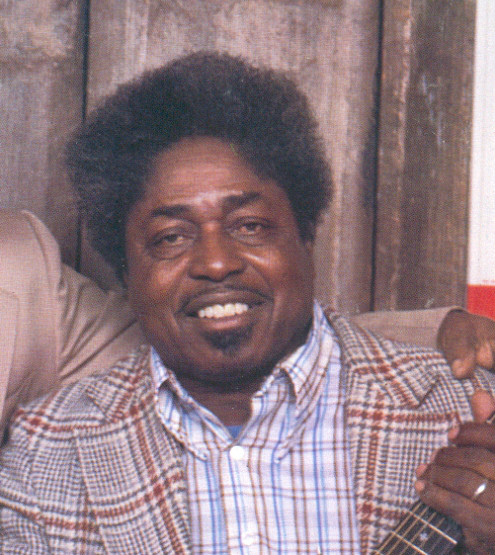Delta bluesman and former Robert Johnson cohort. His career lasted into the 1960s folk revival. Johnny Shines is best known for being Robert Johnson’s traveling companion. However, his contributions to blues music have been often overlooked because Johnson’s legend casts so much shadow. Shines was a top-rated slide guitarist in Delta blues. His unique, energetic style may have been influenced by Johnson, but it was not a copy. Shines made it to Chicago and transitioned to electrified urban Blues easily, thanks to his strong, passionate vocals. He was greatly under-recorded in his prime years and even quit the music industry for a while. However, he was rediscovered in late 1960s and was recorded and toured for quite some time. Although he lost some of his guitar dexterity after a stroke in 1980, his voice was still a powerfully emotive instrument and he continued performing until his death in 1992. John Ned Shines was a Memphis native who was born in Frayser (TN) on April 26, 1915. He grew up there from age six. He was part of a musical family. His mother taught him guitar and he played on the streets of Memphis as a teenager with his friends. He moved to Hughes, AR in 1932 to become a sharecropper. While he was still performing his musical activities, he decided to pursue a career as a professional musician. Shines first met Robert Johnson in Memphis, AR in 1934. He began to accompany Johnson on his travels through the Southern juke-joint circuit. They played wherever they could find gigs and eventually made it as far as Windsor, Ontario. Shines and Johnson had been on the road for three years, making him one of Johnson’s closest associates. They split in Arkansas in 1937. Johnson died in 1938. Shines continued to travel the South for a while, but in 1941 he decided to move north to find work in Canada and then to catch a boat to Africa. Shines ended up staying in Chicago because his cousin offered him a job as a construction worker when he reached the end of his journey. In 1946, he recorded his first recordings for Columbia. The label refused to release four of his tracks. He resurfaced with Chess in 1950, cutting sides that were seldom released. These sides were often referred to as “Shoe Shine Johnny”, when they were. Shines was also finding gigs supporting other artists during live shows and recording sessions. He created some great sides for JOB from 1952-1953. Some of them featured Big Walter Horton playing harmonica. However, they were underappreciated commercially and Shines returned back to his supporting roles. Shines was fed up with the musicians’ union in 1958 over a financial dispute and quit the music industry. He pawned his equipment and made his living only with the construction job he had kept all along. Shines managed to stay connected to the local blues scene through his work as a photographer at live events and selling souvenir photos. He was eventually sought out by blues historians and asked to record for Vanguard’s classic Chicago/The Blues/Today! His appearance on the third volume of 1966’s Master of the Modern Blues/Today revived his career. Shines cuts his next session for Testament (1966’s Master of the Modern Blues Vol. 1 with Big Walter Horton and more), and Blue Horizon (1968’s Last Night’s Dream), effectively introducing him to a large portion of the listeners. Shines received a much better reception this time and he set out on the road with Willie Dixon and Horton as the Chicago All-Stars and then his own band. Shines lost his daughter unexpectedly and was left to care for his grandchildren. He moved his entire family to Tuscaloosa (AL) to ensure that they were raised in an urban environment. Shines was a recording artist for Biograph, Advent and Tomato in the 1970s. One of his most popular releases was 1975’s Too Wet to plow (for Tomato), which was more Delta-styled. In between his touring gigs, he taught guitar in Tuscaloosa. Shines, despite his high-quality work was still fascinating to white blues fans. He was often interviewed about his experiences with Robert Johnson and his music, but he did not discuss his current career or his music. This frustrated him. He didn’t let that stop him from rediscovering his Delta blues roots or including many Johnson’s classics in his own repertoire. In fact, Shines recorded and toured often during the late 1970s with Robert Jr. Lockwood. This teaming owes much to Johnson’s legacy. Shines had a stroke in 1980 that severely affected his ability to play the guitar. It would never be the same again. His voice was still strong and he was able continue to tour America and Europe with the help of some of his students. Shines was featured in the documentary Searching for Robert Johnson in the early 1990s. He also recorded a final album with Snooky Perry, 1991’s Back to the Country. This album won a Handy Award. Shines was in declining health and he died on April 20, 1992 at a Tuscaloosa hospital. Allmusic
